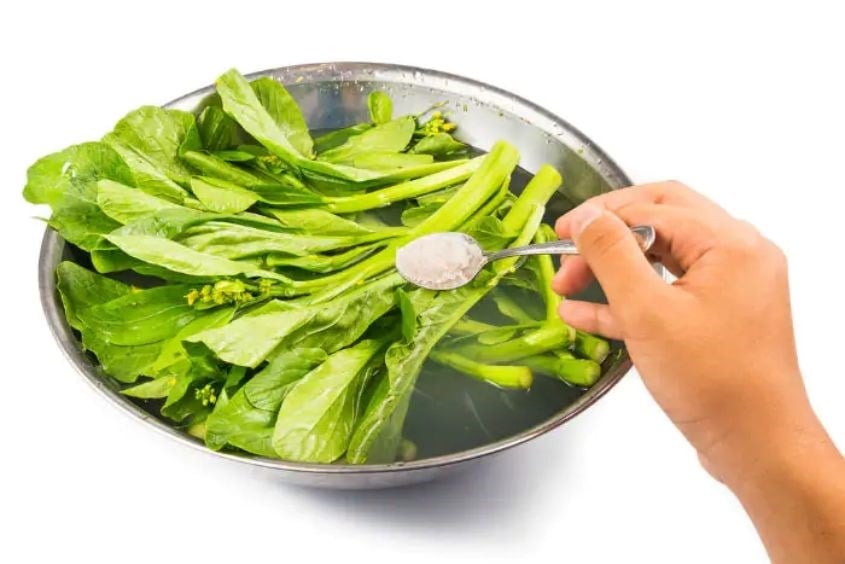While soaking vegetables in a diluted salt water solution is a common practice to remove pesticides and bacteria, experts suggest that this method may not be as effective as we think. In fact, it can cause vegetables to wilt and lose their nutritional value. For truly clean and safe produce, try adding this simple additional step to your routine.
Why isn’t soaking in salt water enough?
- Diluted salt water only kills some bacteria and does not break down chemical residues like pesticides and fertilizers.
- Salt has hygroscopic properties, drawing water out of vegetables and causing them to wilt if soaked for too long.
- Soaking in salt water can leach out water-soluble vitamins and nutrients from the vegetables.
Thus, while soaking in salt water is a traditional practice, it may not be suitable for today’s produce, which is often exposed to higher levels of chemicals.

For cleaner vegetables, try this additional step
Adding a step of soaking in a water and vinegar or baking soda solution can make a big difference in the cleanliness of your produce.
How to do it:
- Prepare a clean basin of water.
- Add 1-2 tablespoons of white vinegar or 1 teaspoon of baking soda.
- Soak the vegetables for 5-10 minutes, stirring gently.
- Rinse the vegetables thoroughly with clean water and let them air dry before cooking or consuming.
Why is this method effective?
- White vinegar has mild acidic properties that help break down pesticide residues on vegetables.
- Baking soda has the ability to neutralize and lift away chemical residues and dirt.
- Combining a soak in vinegar or baking soda solution provides a safer and more effective cleaning method than salt water alone.
Some tips to keep in mind when washing vegetables
- Wash vegetables in parts – leaves, stems, and roots – to ensure thorough cleaning.
- Avoid soaking vegetables for too long to prevent nutrient loss.
- After washing, rinse vegetables under running water to remove any residual vinegar or baking soda.
- Pay extra attention to washing leafy greens and herbs that are typically consumed raw to ensure their safety.
Conclusion
By adding this simple step to your vegetable cleaning routine, you can significantly improve the safety and cleanliness of your family’s meals. Skip the salt water soak and try using vinegar or baking soda instead for cleaner, fresher-tasting vegetables, and peace of mind.
































